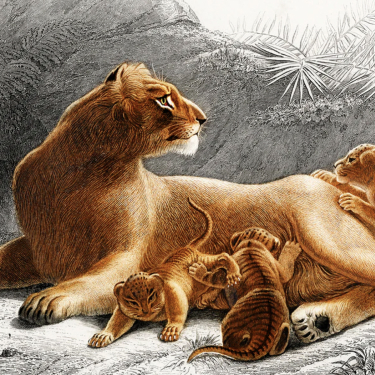Pioneer
INTERACTION

Pioneer (DI)
Quick definition
Direct, action-oriented, charming and enthusiastic. Motivated by success and social recognition.
Average user score
76
Find your score on over 100 traits on Dimensional.
Download
Pioneers are primary (D)ominant types with secondary (I)nspiring qualities. They are motivated by accomplishment and want to be recognized as the best in their field. They have forceful personalities and enjoy lively debates. They are results-oriented, and depending on the degree and maturity of their Dominant side, want to lead teams through a mix of charm, control, and collaboration. They are both kindhearted and coldly realistic, and can show either side depending on circumstances.
Primary Qualities
- Vocal about their perspectives and ideas
- Rebellious, curious, and entrepreneurial
- Ambitious, demanding and results-focused
Primary Motivations
- Getting things done
- New and exciting opportunities
- Control in the pursuit of outcomes
- Solving challenges and problems
- Success in work and personal life
Primary Fear
- Being dominated/controlled by others
- Rejection from a group
- Loss of status, power, or influence
- Stagnation
Distribution of user scores
0
25
50
75
100
Other Archetypes in Interaction
Opposite
Archetype Breakdown
Influence
Dominant
Supportive
(DI)
(ID)
(IS)
(SI)
(SC)
(CS)
(CD)
(DC)
Cautious
Strengths
- Fast-paced and results-oriented
- Making decisions with imperfect information
- Willing to break things and take necessary risks
- Energetic and enthusiastic
- Thrive in situations others would find stressful or challenging
Weaknesses
- Trouble following routines or processes, especially if they deem them unimportant.
- Hopping between too many new ideas and opportunities.
- If they find themselves in the wrong career or circumstances, they are disinterested and unfocused.
- Attention to detail.
- May lash out at incompetence.
- May appear arrogant, self-centered, or cocky.
- Can be too blunt or sarcastic.
Decision Making
- Quick and decisive
- Take action with limited information
- Synthesize information from many sources
Unhealthy Adaptations
- Focusing too much on popularity and ambition at the expense of relationships.
- Losing sight of how others perceive them when put in positions of power.
- Unable to share decision-making power with important people in their lives, they end up alienating themselves from people who could balance them out.
Recommendations for DIs
- Show a sincere concern for your team and others
- Practice patience when people don't think or act as quickly as you
- Take consideration of others' ideas without immediate judgment
DI-types are bold leaders who want to explore new possibilities and frontiers. They demand a lot from themselves and therefore implicitly demand a lot from others. They value competence and resourcefulness on their teams.
Potential Leadership Strengths
- Able to inspire teams and speak authoritatively.
- Can use charm to build teams and bring people together.
- Take ownership and accountability over results. Hold their teams to high standards.
- See the big picture and have a vision for the future.
- Take risks and bold actions when needed.
Potential Leadership Weaknesses
- Delegating without providing adequate structure for their teams, and yet being demanding with results.
- Reacting with annoyance or impatience when work is not up to their standard.
- Lack of focus. Pursuing too many things at once.
- Losing track of the details and process.
- Being too controlling
- Don't sufficiently take people's feelings into account.
First and foremost, DIs value managers who they view as competent and not overbearing. They can handle direct feedback better than other types, but like any other type, they need positive feedback to balance the constructive.
Strategies for influencing DIs
- Show appreciation and praise for good results
- When in disagreement, be clear about your perspective and rationale
- Use reason and logic
- Provide clear goals
Creating the ideal environment for DIs
- Give them open playgrounds to exercise their own judgment
- When giving them responsibilities, give them adequate authority to drive results
- Their big-picture and fast-paced approach is often paired well with more detail-oriented types
- Give them credit and recognition for good work and ideas
Things to avoid when managing DIs
- Appeals to authority (e.g., "because I am your boss") are ineffective
- Avoid micromanaging
- Be mindful about introducing too much process
- Presenting their work as your own
DI communication style
- Enjoy debating.
- Vocal about perspectives and ideas. Particularly if they score high on ideas-exploration.
- Lively and energetic. Especially if they're extraverted
- Resist influence from others
Strategies for communicating with DIs
- Give direct answers and focus on bottom-line
- Discuss solutions. Not just problems.
- Take time to chat
- Ask for their decisions
- Don't meander off your points. Stay focused.
- Focus on big picture
- Convince with logic and facts






